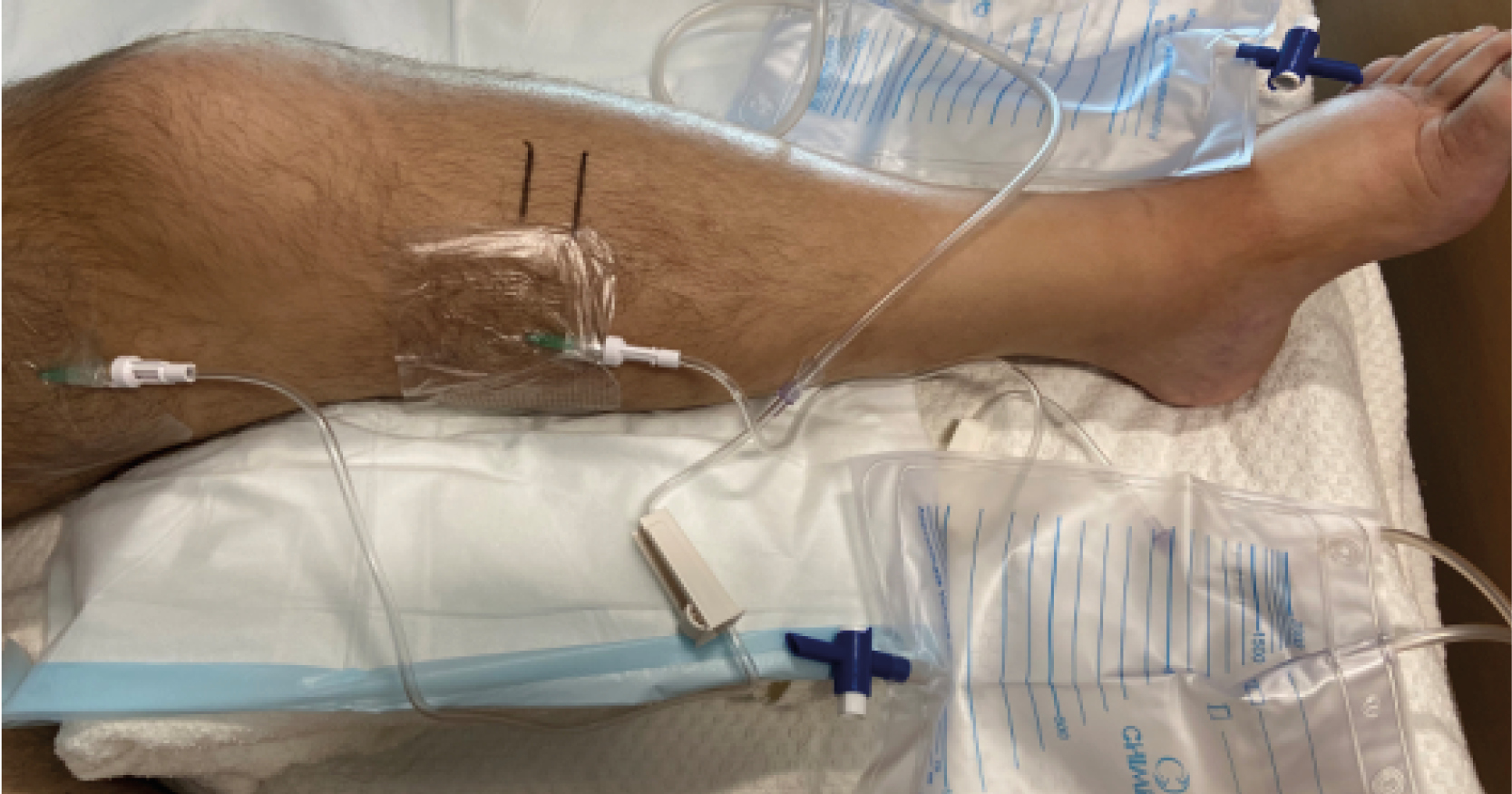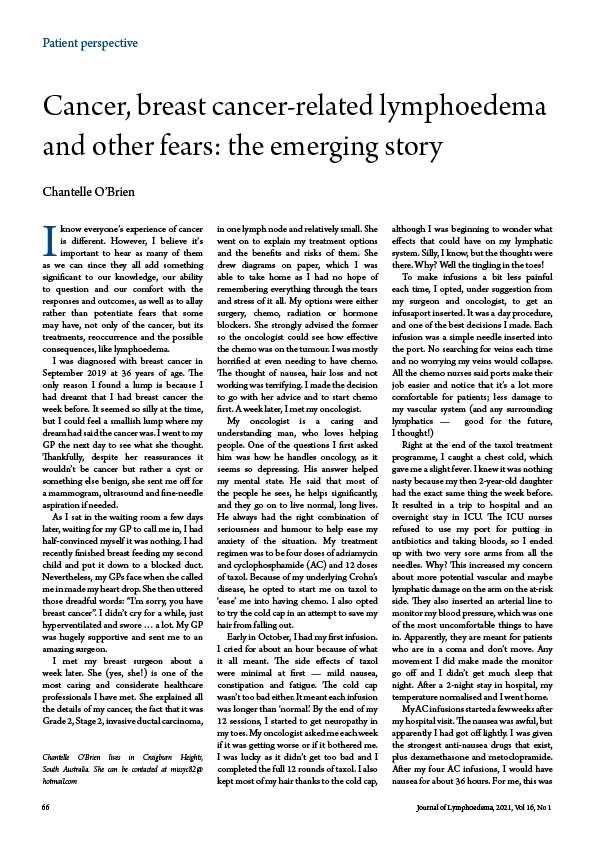<p>Background: Acupuncture in lymphoedema management is controversial, with assumptions it will introduce infection or exacerbate swelling.</p>n<p>Aims: This three-step, patient-centred, mixed-methods study assessed acceptability, impact on quality of life, and adverse events of traditional acupuncture as an adjunct to maintenance care for people with lymphoedema secondary to breast and head and neck cancers.</p>n<p>Methods: Step 1: focus groups with patients and clinicians assessed acceptability. Step 2: in an observational study, participants chose seven or 13 treatments. Outcome measures included Measure Yourself Medical Outcome Profile (MYMOP) and 36-Item Short Form Health Survey (SF-36). Step 3: focus group participants discussed their perceptions of treatment.</p>n<p>Results: Step 1: eight focus groups (<em>n</em>=39) found acupuncture acceptable, providing affected areas were not needled. Step 2: 30/35 participants completed 13 treatments. MYMOP change scores were clinically and statistically significant at all measurement points. SF-36 scores remained significant for bodily pain and vitality four weeks after the end of treatment. Step 3: data from six focus groups (<em>n</em>=23) supported quantitative results.</p>n<p>Conclusions: Acupuncture can be used safely to manage the symptom burden for cancer survivors with upper-body lymphoedema and may improve concordance with long-term management.</p>n<p>Declaration of interest: None.</p>



